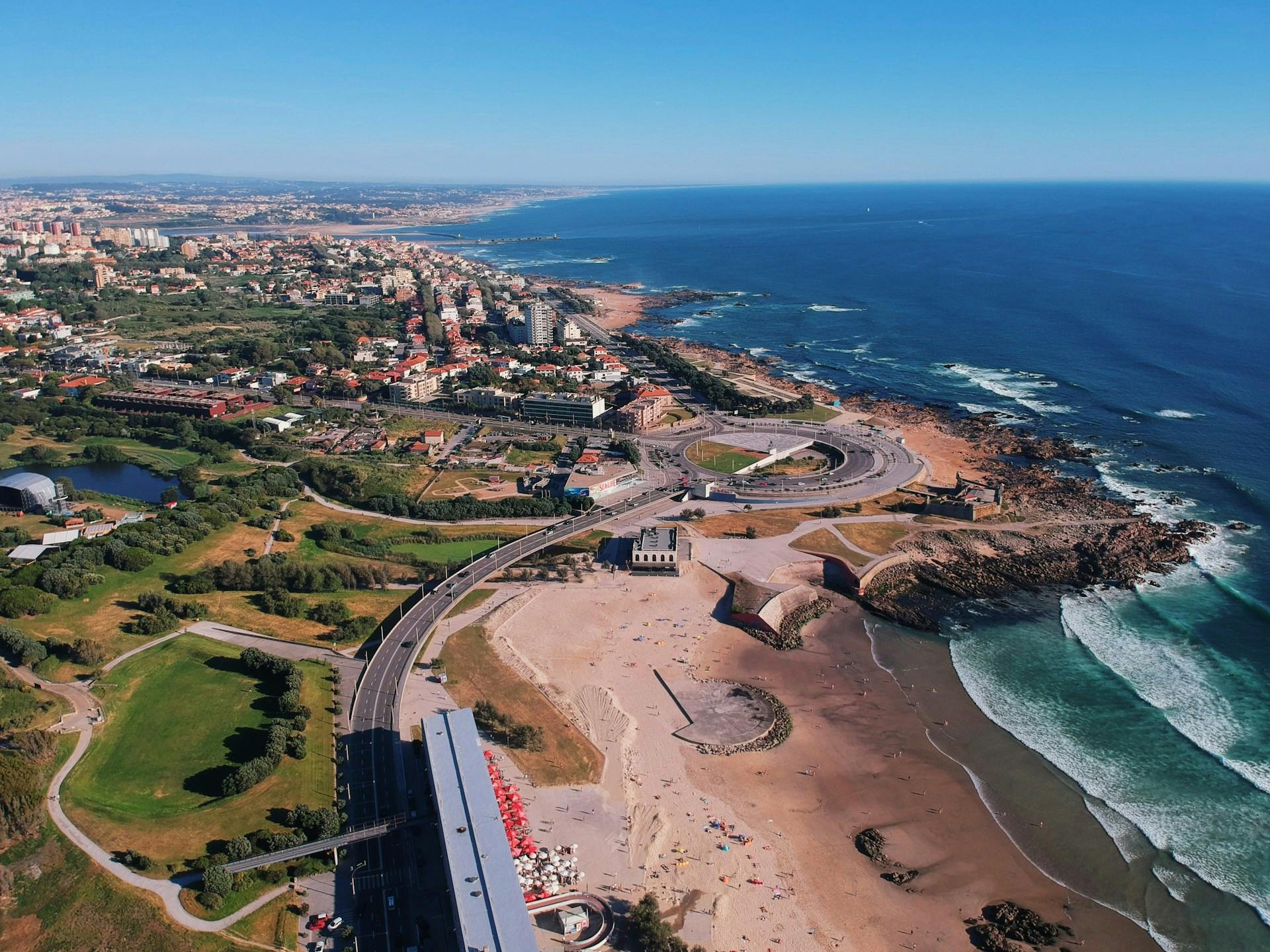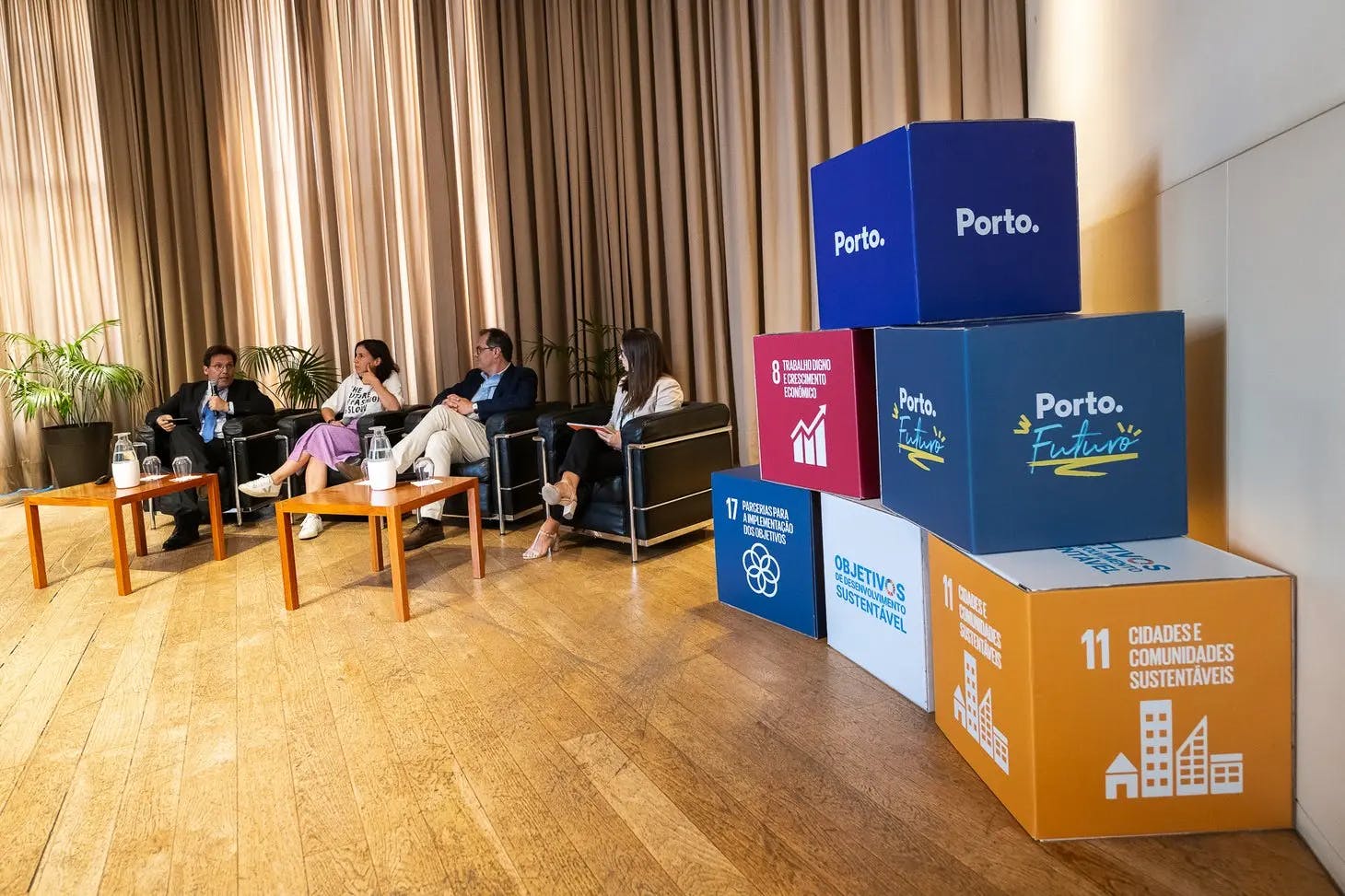Porto ahead of Portugal in achieving the UN's Sustainable Development Goals
29/01/2024
Written by
GIEE | CM Porto

With the publication of the Municipal Sustainability Index (MSI) 2023 report by experts from Universidade Católica Portuguesa, Porto takes a step forward in its commitment to sustainable development. In line with the United Nations 2030 Agenda and the 17 Sustainable Development Goals (SDGs), the MSI provides a targeted assessment of Porto's progress towards achieving the SDGs.
The MSI is a collaborative initiative headed by the Centre for Studies and Opinion Polls (CESOP) of Universidade Católica Portuguesa, involving multiple entities, both public and private. It employs a robust methodology to capture insights across different perspectives, leveraging data from official sources to create a comprehensive view of Porto's sustainable development landscape.
The 2023 edition of MSI emphasizes continuous improvement, featuring 146 indicators (13 more than the previous year), with 125 unique indicators related to 70 specific targets. The inclusion of local-level data remains a crucial criterion for indicators. New indicators span crucial areas like education, energy, employment, greenhouse gas emissions, and sustainable practices in educational institutions and local neighbourhoods. Standardizing processes and criteria was also a priority, aligning the index with national and European statistical benchmarks, such as those established by IAEG-SDGs, Statistics Portugal (INE), Eurostat, OECD, SDSN, and SDSN Europe.
In addition, the latest release of the MSI report aimed for improved clarity, presenting data graphically to facilitate the interpretation of Porto's local performance in SDG attainment. The goal is clear – make the index not just informative but easily digestible, ensuring that citizens and decision-makers can easily interpret and act upon the findings, allowing for an informed and contributing to Porto's sustainable and resilient future.
Porto – Municipal Sustainability Index 2023 Report (in portuguese)
Porto's 2023 performance
The global MSI score for Porto has seen a positive trajectory, climbing from 60.4 in 2019 to 66.0 in 2023. This upward trend underscores Porto's commitment to achieving the United Nations' 2030 Agenda. Notably, Porto stands out with a score well above the national and regional averages, positioning itself as a leader among comparable municipalities.
Municipal Sustainability Index Scores by SDG from 2019 to 2023
However, a closer inspection of individual SDGs reveals a nuanced performance by Porto. The municipality exhibits strengths in certain areas, particularly in SDGs 3 (Health and well-being), 4 (Quality education), 6 (Clean water and sanitation), and 7 (Affordable and clean energy). Additionally, Porto outperforms the country in SDGs 11 and 12.
Municipal Sustainability Index Scores by SDG in 2023
Yet, there are notable areas for improvement, as demonstrated by the SDG 11 score, which suggests a need for enhanced measures in addressing greenhouse gas emissions from road transport and allocating resources to cultural heritage and biodiversity protection. Examining SDG 12, Porto showcases commendable progress in responsible consumption and production. This is attributed to relatively higher waste collection rates, increased preparation for recycling, and reduced landfill contributions.
In SDGs 1 (No poverty) and 10 (Reduced inequalities), Porto's results remain comparatively lower. The lower score in SDG 1 is linked to higher rents and limited financial support for poor families and private social solidarity institutions. Regarding SDG 10, challenges arise from a widened median income ratio between high and low-income families and an increased percentage of the working-age population relying on social inclusion income.
The report’s findings also underscore the need for targeted interventions in specific sectors, urging local stakeholders to address challenges and seize opportunities for improvement. Further scrutiny reveals specific targets requiring focus such as:
- Waste Management (Target 12.4): A notable decline from 81% to 34% in hazardous waste valorisation raises concerns about the need to reinforce the city's waste management strategies.
- Business Survival (Target 8.3): A slight dip in the survival rate of businesses born two years prior, from 60.5% to 58.2%, prompts considerations about the resilience of the local business landscape.
- Tourism Impact (Target 8.9): The decline in the tourism sector's contribution to total value-added, from 5.89% to 4.93%, warrants a closer examination of the dynamics within the city's tourism sector.
- Workplace Safety (Target 8.8): A modest increase in reported workplace accidents, from 7.04% to 7.36%, underscores the ongoing importance of prioritizing employee well-being.
- Environmental Spending (Target 13.a): A decrease from 0.84% to 0.69% in the municipality's expenditures on the environment signals a need for renewed commitment to eco-friendly initiatives.
- Child and Youth Welfare (Target 16.2): The rise in the incidence rate of children and young people under the care of protection commissions, from 4.85% to 5.06%, prompts reflection on child welfare practices.
As Porto navigates the nuances in its sustainability efforts, addressing these targeted areas will be crucial for further advancements in achieving the SDGs. The city’s commitment to sustainable progress is clearly outlined in the latest Porto Futuro Sustainable Development Report, reflecting a shared determination to build a better future for Porto. The MSI emerges as a pivotal instrument, fostering meaningful dialogue and igniting a call to action.
